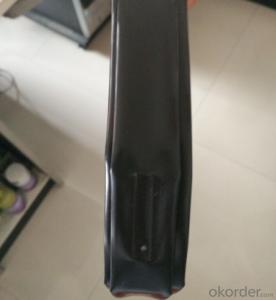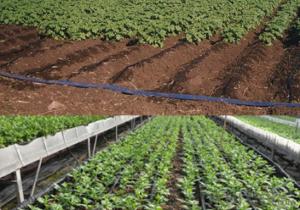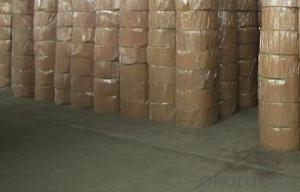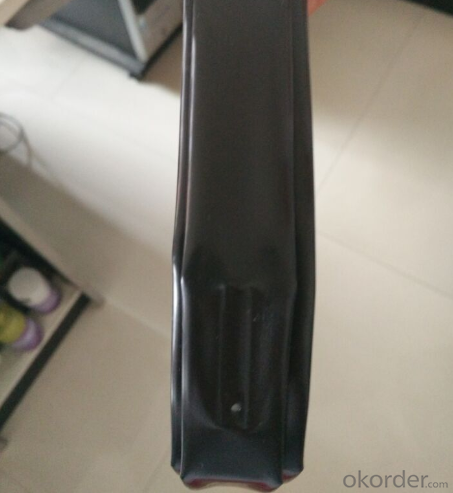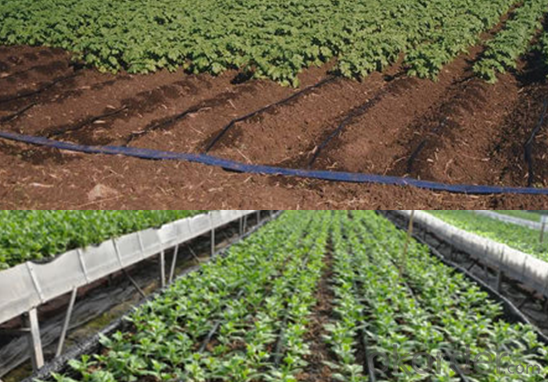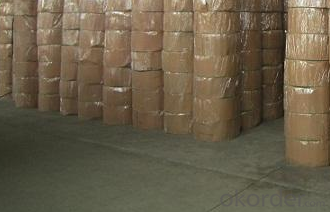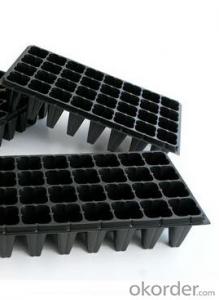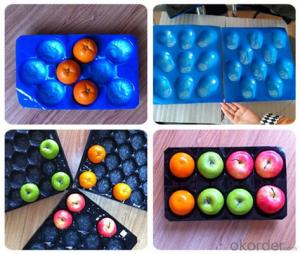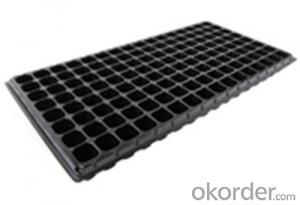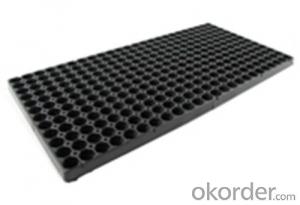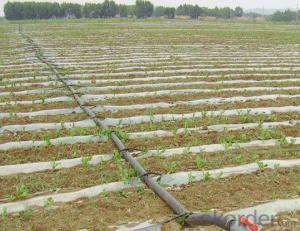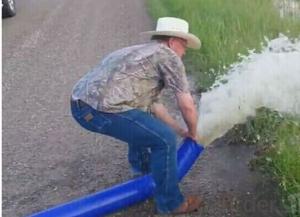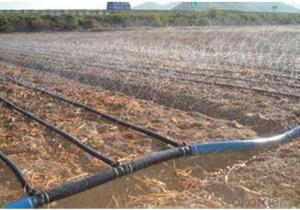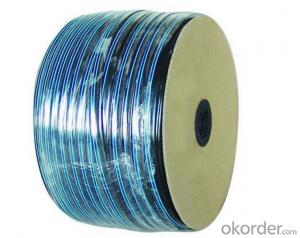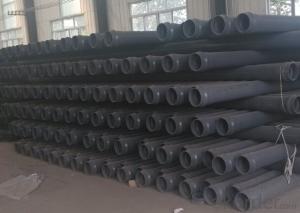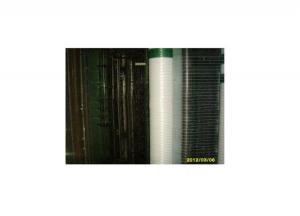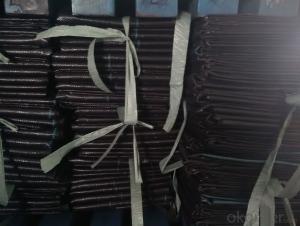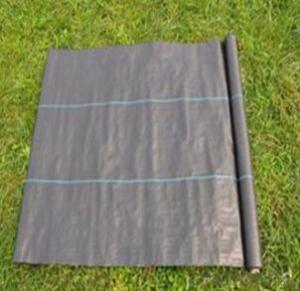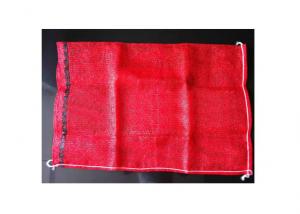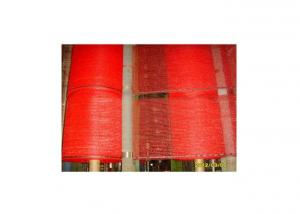Drip Tape or Pipe HDPE Pipe for Agriculture Irrigation System
- Loading Port:
- Tianjin
- Payment Terms:
- TT OR LC
- Min Order Qty:
- 199 m²
- Supply Capability:
- 1999999 m²/month
OKorder Service Pledge
OKorder Financial Service
You Might Also Like
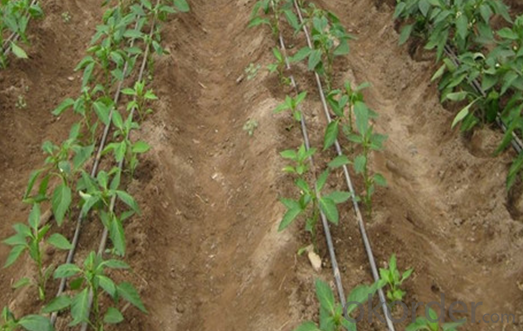
The Application of Drip Tape or Pipe HDPE Pipe for Agriculture Irrigation System:
HDPE Pipe for Agriculture Irrigation System
The layflat hose has a wealth of residential and commercial applications, and it is usually used for general water transfer purposes as well as for submain.Generally layflat hoses are used in the industry of agriculture,in pipe lining and rehabilitation,in removing waste water,in mine dewatering ,in the chemical industry and even for household chores
Features OF Drip Tape or Pipe HDPE Pipe for Agriculture Irrigation System
1. Seamless drip tape with drippers permanently fixed inside. Seamless construction improves ability to withstand pressure fluctuations.
2. With two parallel blue line helps to ensure upright positioning of the dripper.
3. Manufactured from special grade, virgin polymer ensuring close dimensional tolerance and higher strength even at lower wall thickness.
4. Manufactured with the most modern, state-of-the-art equipment. It’s computerized continuous online quality control ensures reliable quality and consistent performance.
5. Hydraulically designed turbulent flow path emitter with wide cross sectional area and precision inlet filter that makes it a truly clog resistant drip tape.
6. Precision laser drilled outlet holes.
7. Extremely low manufacturing coefficient of variation, CVm ensures high field emission uniformity.
HDPE Pipe for Agriculture Irrigation System
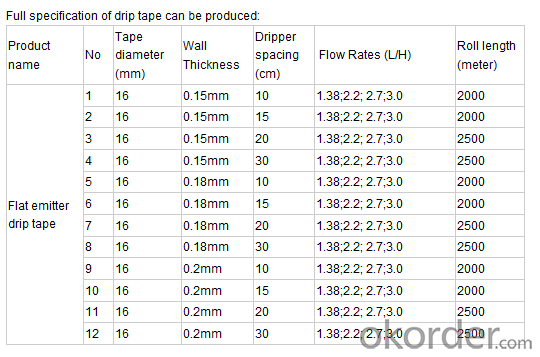
The decription of Drip Tape or Pipe HDPE Pipe for Agriculture Irrigation System:
Two layers of PVC bonded together encapsulating high tensile polyester fibers.
Thick wall dimensions and strong yarn structure help products to hold connections and resist bursting.
It assumes the conventional round appearance when pressure is being passed through it and then returns to its flat shape after use.It does not need drying and can be rolled immediately after use.
Features of Drip Tape or Pipe HDPE Pipe for Agriculture Irrigation System:
1.Great durability mainly given by the reinforcement and high-density PVC material.
2.The layflat hoses can have up to 12 inches diameter based on their applications.
3.Extra thickness are added in order to prevent bursting due to pressure in heavy industry.
4.Can be easily rolled up,stored and reused,as it has a very durable construction.
5.The hoses come with a variety of fittings and accessories ensures the water transfer process free of leaking.
6.Temperature range:-5°C~65°C(23~149F)
HDPE Pipe for Agriculture Irrigation System
FAQ Drip Tape or Pipe HDPE Pipe for Agriculture Irrigation System
1.Q:Are you manufactory or trade company?
A:We are the Manufactory specialized in drip irrigation more than 20 years; Our factory have passed IS09000.
2.Q:How can I get the samples?
A:If you need some samples to test, we can make as per your request .You should pay for the transportation freight of samples and our samples cost, while the samples cost can be refundable after you place the order if the amount meets our requirement.
3.Q:How much the transportation freight of samples?
A:The freight depends on the weight and packing size and your area.
4.Q:How long can I expect to get the sample?
A:The samples will be ready for delivery within one week. The samples will be sent via express and arrive in 7-10 days.
5.Q:Can we have our Logo or company name to be printed on your products or package?
A:Sure.Your Logo can be put on your products by Hot Stamping,Printing,Embossing,UV Coating,Silk-screen Printing or Sticker
- Q: Are there any regulations for the use of agricultural plastic products?
- Yes, there are regulations for the use of agricultural plastic products. These regulations vary by country and region, but generally aim to ensure safe and responsible use of plastics in agriculture. They may cover aspects such as proper disposal, recycling, and management of plastic waste, as well as guidelines for the use of specific types of plastic products in farming practices.
- Q: Are nursery trays suitable for aquatic weed control?
- No, nursery trays are not suitable for aquatic weed control as they are primarily used for growing and establishing plants, not for controlling weeds in aquatic environments.
- Q: Hello, is there a type of plastic I can buy that I could melt and pour into a mold? Thanks.
- I've cast a few resin pieces, and it works well. GOOD LUCK
- Q: I'm really confused about this and hopefully someone on here can clear it up for me I'm reading a journal article and one of their procedures confused me. The researchers used a swab on dried saliva and then the swab was mixed in a plastic cuvet containing 2 mL of KCL solution and than the solution in the plastic cuvet was transferred to a quartz cuvet which was then used in a fluorescence spectrometer. My question is, why did they use a plastic cuvet and then transfer it? Why couldn't they used the quartz cuvet directly?THanks so much
- Plastic cuvettes are cheaper than quartz, for one! Did they mix the fluorescent dye in the plastic, too? I'd have to see what they were measuring, but you do know that plastic adsorbs certain materials that quartz will not. Perhaps there was some fraction of the saliva solution that they did not want transferred over. When doing antibody research, we routinely used plasticware to make the antigens stick to the plastic. That is a possible explanation.
- Q: in your opinon what do you think of plastic surgery?
- obviously death is a major factor but usually if you go to a good dr its not even an issue. plastic surgery in my opinion is a wonderful thing-it always boosts your confidence and self esteem and ultimately makes u look better con : its not ur natural self just ur potential self I have come very very close 2 x to getting a rhinoplasty and for some reason each time it was cancelled to my dismay. by seeing my reaction of tears and depression it just shows me how much i rlly rlly need and desire this procedure and hopefully in april it will happen!! and I am a major fan of plastic surgery and plan on majoring in it when im older!
- Q: This question asks for an overview of the most recent technological advancements applied in the manufacturing of agricultural plastics.
- <p>The latest technologies used in agricultural plastic production include precision agriculture techniques, biodegradable plastics, nanotechnology, and smart sensors. Precision agriculture employs GPS and IoT to optimize the use of plastic mulches and covers. Biodegradable plastics reduce environmental impact by decomposing naturally after use. Nanotechnology enhances the durability and efficiency of plastic films used in greenhouses and crop protection. Smart sensors integrated into plastic covers can monitor and control environmental conditions, improving crop yield and quality. These advancements aim to increase sustainability, efficiency, and crop protection in agriculture.</p>
- Q: Can nursery trays be used for starting vegetable transplants in a greenhouse?
- Yes, nursery trays can be used for starting vegetable transplants in a greenhouse. They provide a convenient and organized way to start seeds, allowing for proper spacing and easy transportation of the young plants. Additionally, nursery trays often have drainage holes, which help prevent waterlogging and promote healthy root development.
- Q: Can ground cover prevent weeds from growing?
- Yes, ground cover can prevent weeds from growing. Ground cover plants, such as low-growing shrubs, grasses, or flowering plants, create a dense and thick carpet-like layer that blocks sunlight from reaching the soil. This inhibits weed germination and growth by reducing their access to light and nutrients. Additionally, ground cover plants compete with weeds for resources, further suppressing their growth.
- Q: How can one manufacture biodegradable plastic bags? What would be the cost?
- Most plastics are biodegradable under UV light. Poly Vinyl Chloride or PVC takes a year or two here in Phoenix Arizona then starts breaking down from the outside in. Most plastics will do so, the result is a fertilizer. It takes a special plastic to stand up under UV radiation, containers have to be specifically ordered to meet UV specifications for out door storage.
- Q: Can agricultural plastic products be used for irrigation systems?
- Yes, agricultural plastic products can be used for irrigation systems. Agricultural plastic materials, such as polyethylene pipes and drip tapes, are commonly used in irrigation systems to transport water efficiently to crops. These products are durable, flexible, and resistant to chemicals and UV rays, making them suitable for irrigation applications. Additionally, using agricultural plastic products in irrigation systems can help conserve water, improve crop yield, and reduce weed growth.
Send your message to us
Drip Tape or Pipe HDPE Pipe for Agriculture Irrigation System
- Loading Port:
- Tianjin
- Payment Terms:
- TT OR LC
- Min Order Qty:
- 199 m²
- Supply Capability:
- 1999999 m²/month
OKorder Service Pledge
OKorder Financial Service
Similar products
Hot products
Hot Searches
Related keywords
